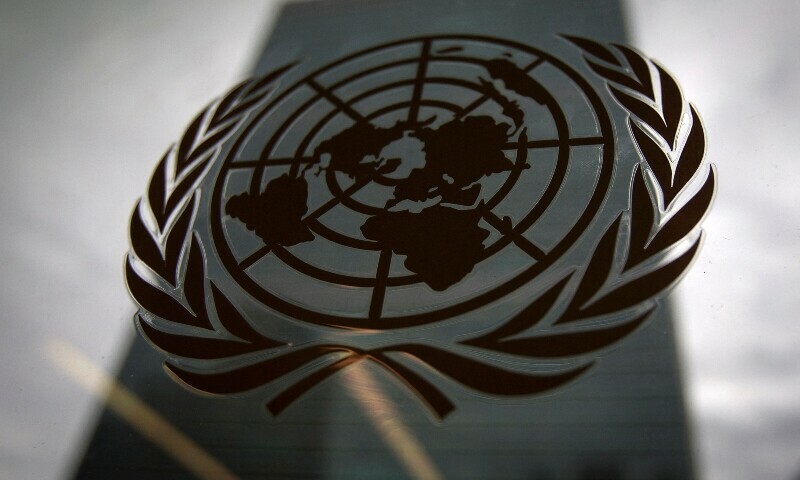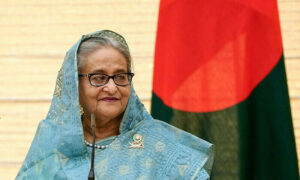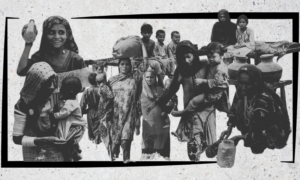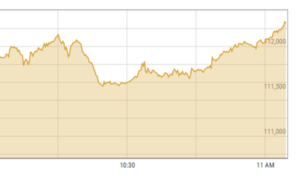LAHORE: The UN Human Rights Committee also called the Committee on Civil and Political Rights (CCPR) on rights violations and raised concerns at the social media surveillance, internet and social media apps blockage to maneuver general elections, religious intolerance, ban on student unions as well as curbs on the media and freedoms of expression and movement.
This happened on the second day of the review of human rights conditions in Pakistan in a meeting in Geneva on Friday.
Questions were raised by the UN committee chair on curbs on freedom of association, saying “according to information received the legislative framework at the federal and provincial levels imposes unnecessary barriers to exercise this right. We have seen in many areas the NGOs have their finances and plans inspected and all this is being used to interfere in the work of some NGOs. There are many reports that national as well international NGOs are subjected to constant investigation and harassment on the part of security operators and govt officers.”
She asked about the measures being taken for a conducive environment for the NGOs to work independently as well as laws to remove the rules that hinder their freedom of association.
College girl’s ‘rape’ issue resounds in Geneva besides religious intolerance, curbs
on rights activists, Pashtun/Baloch students and the media
The committee chair said student unions had been prohibited for more than 40 years.
“University students have to sign a sworn declaration where they reject any political activity as a basis for prerequisite for admission to a university. Similarly, Pashtun and Baloch students are subjected to arbitrary disciplinary hearings and suspensions given their political activity.” She asked about the measures to remove the prohibition on student unions and creating a conducive environment for student unions.
Child rights and anti-rape laws
The committee noted the low level of birth registration in Pakistan, saying only 42 pc of children under 5 had registered birth.
A committee member raised the matter of the recent alleged rape incident of a private college girl, saying that despite claims of anti-rape laws for protection of women, there was a recent incident of rape of a girl at the ‘Punjab Girls College’ and that the procedures were ignored there.
“What measures will the state party take to ensure that that law is properly implemented to avoid political interference?” she asked.
“The committees on juvenile justice are not operational which means there are limited operation on juvenile justice or those in police custody who have no capacity to pay for their bail. There is an absence of rehabilitation centres and programmes that violate the juvenile justice.”
A committee asked about the progress made to modify the legislation to stop the child marriages 1929 law to change the minimum age for marriage to 18 years, raising questions about the non-implementation of an order passed by the Lahore Court, ruling that the minimum age should be increased to 18 years.
Hindu and Christian girls’ conversion
The UN committee raised the issue of forced conversions, expressing shock at the magnitude of cases of Hindu and Christian girls abducted or obliged to convert to Islam, marry their abductors or relatives.
The committee rejected the number of cases to be 74 as reported by the state party, saying the actual number was much more. “Sometimes these cases don’t even reach courts and when they do, the girls are not sent back to their families but to their abductors or sent to shelter most of them don’t have necessary conditions to protect these victims. Some of these girls are exposed to sexual exploitation.”
Religious intolerance and blasphemy
A committee member pointed out that religious minorities such as Shia Muslims, Christians, Ahmadis, Hindus and Sikhs were subject to frequent attacks and threats, including accusations of blasphemy, targeted killings, lynchings, mob violence, forced conversions and desecration of places of worship.
“The society has become increasingly intolerant of religious diversity. The minorities are facing a constant threat of persecution and discrimination amid the rise of religious radicalism.”
She said the criminal law amendment act of 2023, instead of curbing sectarianism, had increased persecution of minorities and minority sects by increasing punishment for using derogatory remarks against holy persons from three years jail to life imprisonment.
“We received information two days back that Rabwa secretary of general affairs and Chiniot district administration had been informed that if Islamic signs are not removed from religious places of Ahmadis by Oct 28, the TLP would take action on its own.” The committee sought information on amendment of blasphemy law to prevent misuse of blasphemy laws.
Freedom of movement and expression
The UN rights body raised the matter of freedoms of movement and expression and the authorities’ use the exit control list to restrict freedom of movement to suppress dissent.
A member said that critics of government and human rights defenders, including Mama Qadeer, Mahrang Baloch, had faced unjustified travel restrictions. The application of restrictions must be based on clear legal grounds. The committee raised concerns at the passport applicants to obtain declaring their religion especially Ahmadi applicants required to identify as non-Muslims to obtain passports.
The committee stressed that defamation laws should be carefully implemented so that they don’t stifle freedom of expression and that imprisonment was never an appropriate penalty for defamation.
“Defamation remains a criminal offence in the PPC and the Prevention of Electronic Crime Act with penalty of imprisonment and fines.
Punjab Defamation Bill 2024 passed without stakeholders consultations raises concerns as it emphasizes prosecuting public officials and allows fine without proof of actual damage which can lead to repression or intimidation.“
It sought review of defamation provisions to align with international laws.
Curbs on the media and self-censorship
A committee member referred to the reports of Pemra exceeding its mandate and using directives as tools for censorship of journalists and media outlets and suspension of licences of news channels.
This concern has been exacerbated by the amendment to Pemra Amendment Bill which introduces definition of misinformation that may enable censorship under the guise of giving authentic news.
“Despite the enactment of protection of journalists and media professionals act three years ago implementation remains weak and commission required under the act is yet to be established. Threats, harassment, abduction violence enforced disappearances and killing of journalists are rampant, leading to self censorship.” He asked about safety measures in place for journalists and human rights defenders.
Internet outages and online surveillance
A UN committee member referred to the censorship including the frequent outages and blockage of social media apps or slower connectivity raises serious concerns about information control and violation of freedom of expression.
“In May 2023 protests, there were four days of internet blackout and social media shutdown followed by frequent outages and restrictions continuing until general elections which prevented voters from accessing polling information and limiting communication.”
She said the Prevention of Electronic Crimes Act (Peca) grants authorities power to charge individuals, particularly young people, with blasphemy based on digital media.
“It makes online defamation of authorities a crime, it allows authorities to block content and law enforcement to collect without a warrant and allows data sharing with foreign governments without legality.
We know that the intelligence service was granted power this year to conduct surveillance for national security. We have multiple examples of Peca being used for unlawful surveillance.“ She raised concerns about involvement of the cyber crime wing of the FIA in charging hundreds of young people with blasphemy based on social media content. It sought information, if any, to review the discretionary powers of surveillance to the state agencies
Bonded labour issue
The UN rights committee said that more than three million Pakistanis were trapped in forced labour, servitude and bonded labour, particularly in the farming sector, brick kilns and domestic work.
“After the floods of 2022, more people, particularly children, have been forced to work despite the national and provincial laws. How the state intends to control the menace and the steps taken to combat the forced labour and conditions of servitude including among children particularly in context of the climate change.” She also asked about the measures taken to curb the advance payment that often leads to servitude and sexual exploitation of children. She asked whether labour inspectors have got resources to carry out investigations effectively.
The Pakistani delegation, headed by Malik Muhammad Ahmad Khan, presented a report on the state of human rights in the country and replied to some of the questions raised by the committee during the review under the International Covenant on Civil and Political Rights (ICCPR).
Pakistan ratified the ICCPR in 2010 and the first review took place in 2017. It was the second one of the review on Friday.
Published in Dawn, October 19th, 2024







